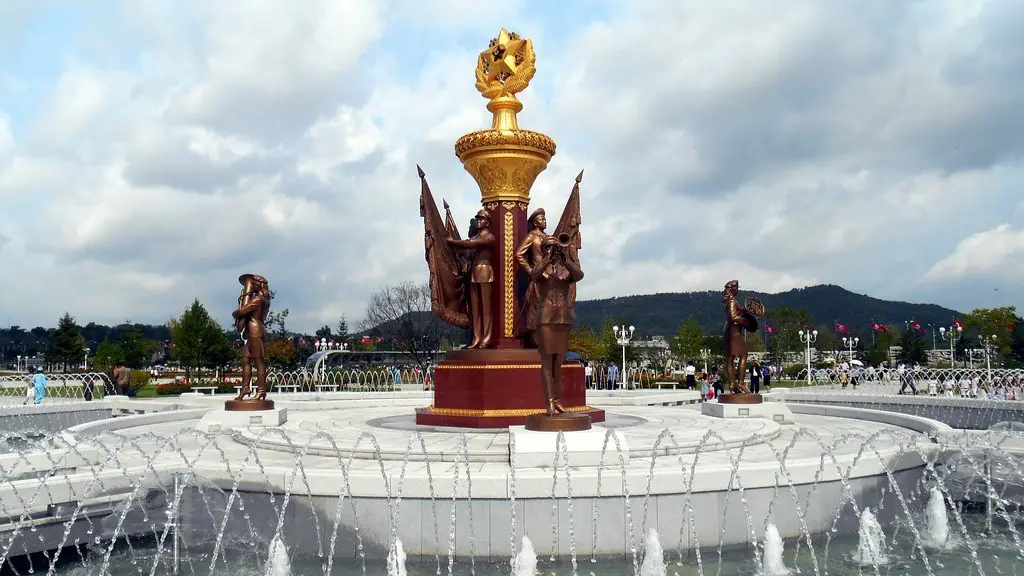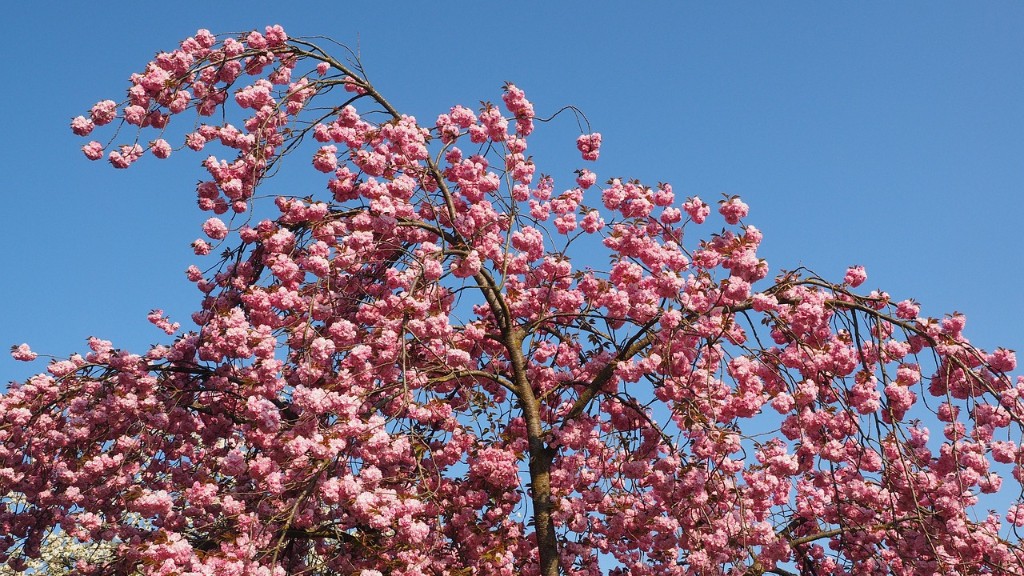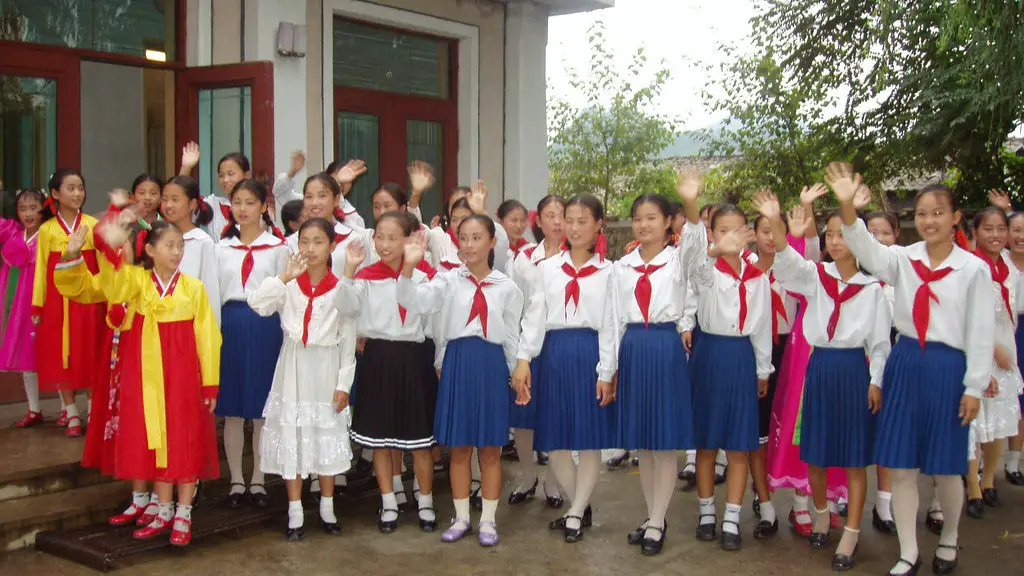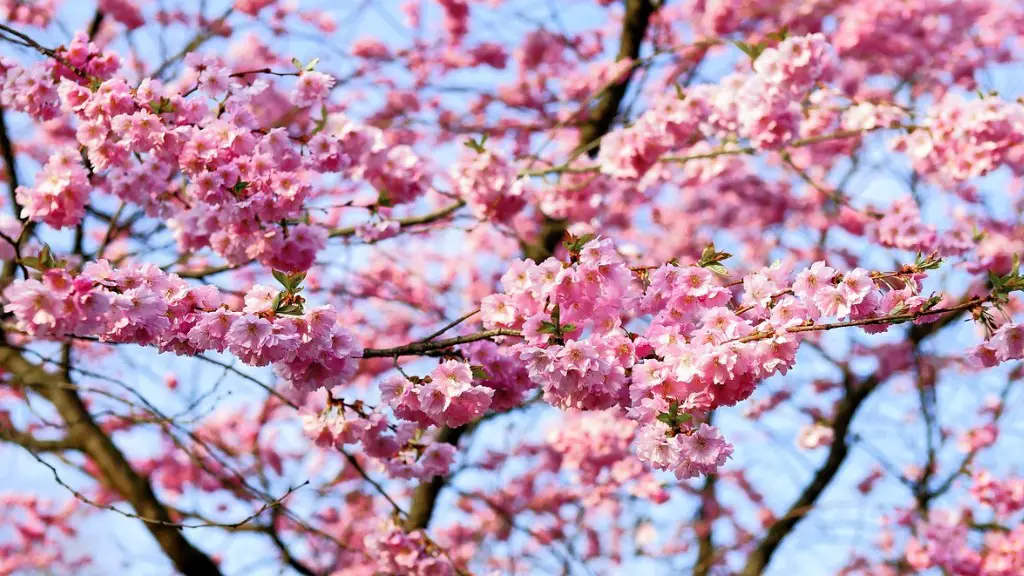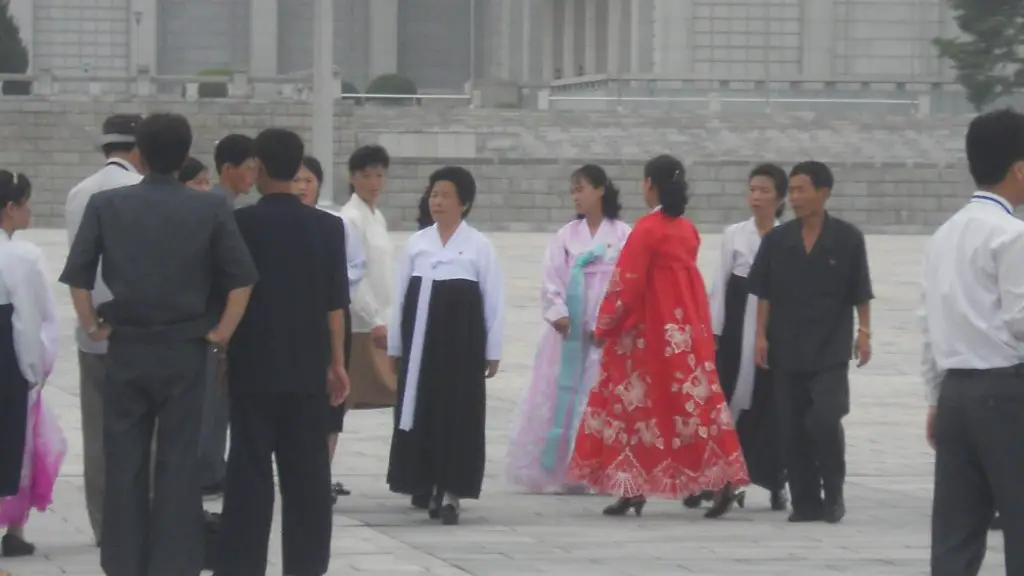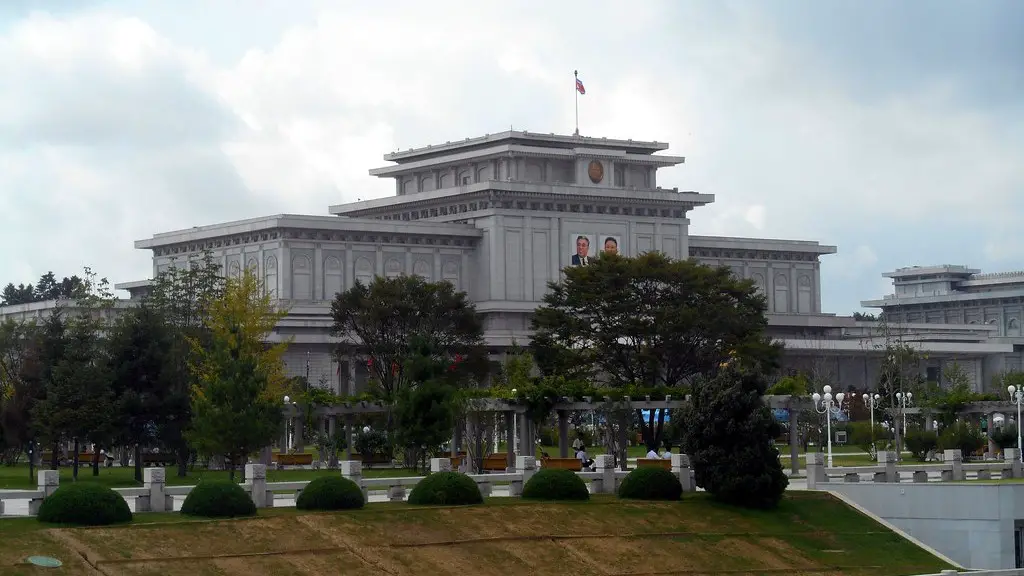Is 1984 Banned In North Korea?
North Korea is a country known for its lack of freedom and control its citizens have on their daily lives. This lack of freedom extends to their right to freedom of thought, speech and opinion. Information coming in and out of North Korea is kept under a tight rein, with the government monitoring and censoring the majority of media sent into the country from the outside world. One of the likely manifestations of this media censorship is whether George Orwell’s classic novel 1984 is banned or allowed to be read in North Korea. To explore this in further detail, this article will offer a critical analysis of the potential reasons for why 1984 may or may not be banned in North Korea, with additional insight from experts on the subject.
At first glance, it does appear that 1984 is in fact banned from the North Korean regime. It appears that the North Korean government has actively sought to eliminate or censor the reference or even talking about the book in the country, suggesting that must mean that a ban is in place. The novel, which criticizes the repression of individuality and freedom that is often seen in totalitarian regimes, could be seen as a direct criticism of the North Korean government. Given this, it is unsurprising that any references to the novel may not be welcome.
However, contrary to the assumption that it is banned, there is little to no evidence to suggest that any outright ban on 1984 exists in North Korea. Furthermore, there has been no record of literature being ‘banned’ in the country. This point is further substantiated by interviews conducted with North Korean defectors that have escaped the country over the past few years, which further suggest that there may in fact be no official ban on the book in North Korea, or at least some access to it.
The assumption that there is a ban on the novel in North Korea is further warped by the analysis of the country’s culture and the lack of ease with which people can access books from the outside world. Consequently, it appears that it is the lack of outside contact due to the government’s control which has made 1984 harder to access, with restrictions on book importing meaning the book rarely if ever finds its way into the hands of North Korean citizens. The lack of access makes the novel feel out of reach, though it seems that it has more to do with the controlled circulation of information rather than any outright ban on the novel.
In speaking to experts on the state of literature in North Korea and its censorship, Dr Dan Bailey of the University of Cambridge corroborates these ideas. He believes that while 1984 may reside within the library of a few select individuals, it is highly unlikely that it is readily available in the country. He highlights that “North Korea is a heavily censored state, and its citizens have only limited access to outside media and books”. Dr Joanna Kim of the National Security Institute adds “North Koreans are fiercely loyal to their government and likely would not have access to anything which is seen as being critical of the regime”.
In conclusion, it appears that there is not an outright ban of George Orwell’s 1984 in North Korea. Given that citizens have limited access to outside media and books, it is difficult for North Koreans to access the novel and discuss it with any ease. For many citizens, the novel may merely exist as a concept and symbol of freedom, rather than a readily accessible book within their daily lives. Thus, it is the control of information within the country which has made 1984, and other media, confined to the realm of theoretical ideas.
The Cultural Context of 1984 in North Korea
When looking at the cultural context of 1984 in North Korea, it is important to consider the country’s history and its development over the past few decades. The rise of the Kim regime has seen the country become increasingly isolated from the outside world, with the state placing restrictions on all kinds of media, including books. The idea of the novel being banned in North Korea, then, is a product of this disconnect between the country and the rest of the world.
In terms of the actual cultural context of 1984, it is a difficult task to understand, given the lack of openness in North Korea and the restrictions placed on media by the state. However, given the references that are still made to the novel and its concepts within North Korea, there is speculation that at least some understanding of the novel exists. This speaks to the popularity of the novel in parts of the west, as well as its powerful message about the repression of freedom and individuality.
The references to 1984 in North Korea, then, are of yet largely unknown. It is safe to assume, though, that it is popular due to its message of freedom and repression, with North Koreans no doubt feeling a sense of familiarity with the themes of the novel. Whether it will be seen in an overtly positive light or not, then, is yet to be seen.
A Look At North Korea’s Censorship System
It is well known that North Korea has a heavily censored system when it comes to media and information. This censorship has been in place for many decades now, and has been implemented to control the flow of information in and out of the country. When looking at the censoring of media such as books, there is a level of control employed over what is allowed into the country and what is prohibited. This includes more than just books, with audio and visual sources of media also heavily monitored.
The extent to which this censorship is taken is also far reaching, with literature in particular seeing a significant level of control. According to Kim Seok-hyeon, Professor at the Graduate School of North Korean Studies in Seoul, North Koreans are allowed access to only “those writings prescribed or approved by the state”. This highlights the fact that only the works approved by the state make the official book list, with those other works deemed unsuitable to the ‘ideology’ of the North Korean government, such as George Orwell’s 1984, not able to see the light of day.
Consequently, it can be argued that books such as 1984 could be seen as the potential target of North Korea’s censorship. The popularity of books such as 1984, that are seen as being critical of the state and its ideologies, could be seen to be the perfect target for a state that wishes to control and limit information regarding thoughts and ideas which oppose their own.
Once again, however, considering the limited evidence, this is merely speculation. The reality is that the state of censorship, and the extent to which it has affected the circulation of literature such as 1984, are tough tricky questions to answer. Further research and evidence will be needed in order to uncover the reality of books such as 1984 in North Korea, and whether an outright ban is, in fact, in place.
Implications of Censorship in North Korea
When considering the implications of censorship in North Korea and its effects on books such as 1984, there is, unfortunately, mostly speculation. While it is clear that works of literature which oppose the ideology of the state are often prohibited in some way, the effects of this are yet to be seen.
However, theories have been put forward by experts on North Korean censorship, suggesting that the lack of access to these books could have a long-term effect on the citizens of North Korea. According to Dr Dan Bailey, “it could imply a generation of people less aware of the dangers of oppressive regimes and the importance of free thought and speech”. The danger here then is that books such as 1984, which will be essential in order to understand the reality of oppressive regimes and their impact on society, will be more and more difficult to access.
This could in turn lead to a sense of apathy in North Korean citizens regarding matters of freedom and self-expression, as they will be denied exposure to the issues addressed in works of literature such as 1984. This will be made worse with the continual restrictions imposed on information and media, with an ever increasing lack of exposure to any works which may be critical of the state.
Why Is 1984 Still Meaningful Today?
Despite being over 70 years old, George Orwell’s 1984 has continued to remain a relevant and meaningful work of literature today. Its themes of oppressive rule and the importance of free thought remain as powerful as ever, and its portrayal of a totalitarian regime still offer people insight into the dangers of such a state. Its importance and relevance today is founded in its ability to hold a mirror to the reality of oppressive regimes around the world, including those found in North Korea.
In terms of its importance in North Korea, the novel is seen as symbol of freedom and self-expression. Its themes and language often highlight the importance of these qualities, with many North Koreans able to identify with these concepts. From this, it is clear that the novel is still seen as a critical part of the conversation surrounding North Korea and its totalitarian government, even if its direct presence is often limited in the country.
Consequently, 1984 still remains a powerful and meaningful work of literature to this day, not least in North Korea. It serves as a direct criticism of oppressive states and their effects on society, with its presence often seen as a glimmer of hope in the darkness of overwhelming censorship and restriction. Its relevance, to this day, should not go unrecognized.
Impact Of George Orwell In North Korea
When considering the impact of George Orwell in North Korea, it is yet again difficult to speculate. However, it is fair to say that the impact of his work in North Korea is likely to be, at least in some way, influential. His works, and, in particular, 1984, have long served as a criticism and form of social commentary on the dangers of totalitarian rule.
Within North Korea, then, it is likely that at least some awareness of George Orwell and his works exist. The references and continued discussion of 1984 in North Korea, as well as its role as a symbol of freedom and self-expression, suggest that it is accepted, or at least understood, in North Korea as a critique of the oppressive state. What this direct influence is, though, is yet to be seen.
More research is needed in order to uncover the extent to which George Orwell’s works have an effect in North Korea, and whether the presence of his works is a cause for hope or an unwelcome rebuke. Until then, it is safe to presume that at least some awareness and understanding of George Orwell exists in North Korea, even if it is not a presence easily accessible.
